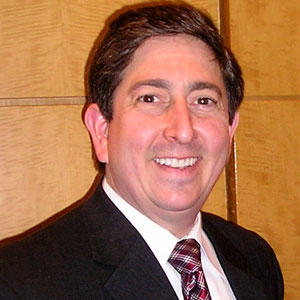
Thousands of pieces of legislation are introduced in each Congress, but only a small percentage make it through the entire process, especially in that first year. Bills that are not voted into law and signed by the president during that two-year period “die” when the second session is completed and Congress adjourns. According to congressional rules, “A bill may be introduced at any point during a two-year Congress. It will remain eligible for consideration throughout the duration of that Congress until the Congress ends or adjourns sine die.”
At that point, after an election and as a fresh Congress convenes, new and resurrected legislation can be introduced. This is the standard practice, because most bills require years to gain the bipartisan support necessary to maneuver through the committee structure in both the U.S. House and Senate. Ultimately, each chamber must reconcile its legislation to match, word for word, before a bill is sent to the president’s desk. Believe it or not, it does happen. Here are just three pieces of legislation that ONS is helping to shepherd through the U.S. Congress in hopes of passage.
Palliative Care and Hospice Education and Treatment Act
Introduced a few years ago, this bipartisan bill has more than 200 cosponsors and is gaining support in Congress. Led by Representatives Eliot Engel (D-NY) and Tom Reed (R-NY) and Senators Tammy Baldwin (D-WI) and Shelley Moore Capito (R-WV), the bills are methodically advancing through the right channels in hopes of making it to the respective halls of the Capitol. These bills, H.R. 1676 and S. 693, are intended to provide funding for palliative care and hospice education centers to improve the training of healthcare professionals. This is done through federal grants, academic career awards, incentive contracts, and schools of nursing. Most refer to this as a “train the trainer” bill.
Cancer Drug Parity Act of 2017
The lead sponsor for this bill, H.R. 1409, U.S. Representative Lance Leonard (R-NJ), is himself a cancer survivor. Along with his cosponsor, Congressman Brian Higgins (D-NY), Leonard is striving with the legislation to require health plans that cover cancer medications that are administered by a healthcare professional to also cover cancer medications administered by a patient (e.g., oral cancer therapies). Additionally, a component of the legislation is that plans cannot increase out-of-pocket costs, reclassify benefits, or restrict limitations to orally administered medications than are subject to similarly used IV or injected medications.
Addiction Treatment Access Improvement Act of 2017
Recently introduced by U.S. Representative Paul Tonko (D-NY), H.R. 3692 is still having its final language drafted with the support of many in the nursing community. The intent of this bill is to broaden the Controlled Substances Act to include advanced practice nurses in the treatment of patients with opioid addictions. The act recognizes the role of the nurse in the provision of care and outlines nurse practitioners, clinical nurse specialists, certified registered nurse anesthetists, and certified nurse midwives to be able to use their clinical training to help combat the national drug-addiction epidemic.
The midterm elections are in November 2018. Although that seems an eternity from now, they have already begun in the political world. This is a timeline of which both political parties are keenly aware. Their legislative agendas, and frankly those of groups like ONS, are under pressure to complete Congressional bills to change the way health care is interpreted and implemented.
A crucial part of the process is having constituents express support for broad and specific legislation to their federal representatives. ONS continues to be a leading voice in nursing, oncology, and health care. Advocacy is essential, and success can only be reached with the expertise of nurses. If a Congressional sponsor works hard and is a little lucky, his or her bill will be one of the small percentage that becomes a law. Learn more about how you can help ONS educate decision makers.






